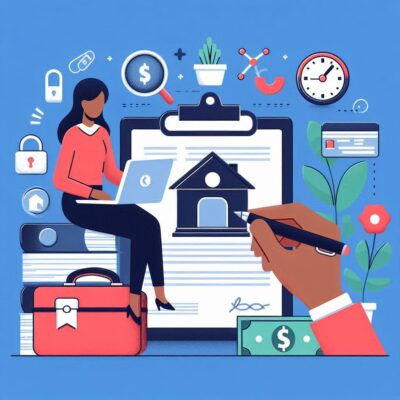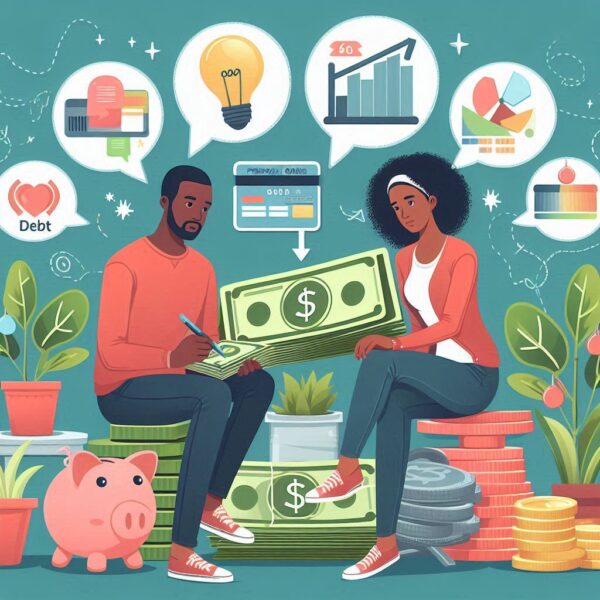Personal loans can be a bit of a mystery if you’ve never dealt with them before. They’re essentially a type of installment credit that comes with a fixed interest rate and set repayment schedule. Unlike credit cards, which potentially stretch indefinitely if you only make minimum payments, personal loans have a clear start and end date, which can help you plan your financial future more confidently.
Now, maybe you’ve heard about secured and unsecured loans. Secured loans require collateral, like your car or home, which the lender can claim if you fail to pay. Unsecured loans don’t need collateral, but because they pose a bigger risk to lenders, they often come at a higher interest rate. Understanding these two types can help you make smarter choices.
So, why would someone choose a personal loan over other options? One major reason is debt consolidation. By rolling multiple high-interest debts into one personal loan, you might snag a lower interest rate, ultimately saving you money and making your finances easier to manage. This single payment can often simplify things and help get the debt load under control.
People reach for personal loans for another reason too. Sometimes life just throws unexpected expenses at you—medical bills, home repairs, or even that dream wedding that costs a bit more than planned. With a personal loan, you don’t have to drain your savings or max out your credit cards to cover these costs. It offers a bit of breathing room, knowing there’s a commitment to pay it back gradually.
Guess what? When you click and buy through our links, you’re doing more than improving your financial circumstances. You’re supporting us in a way that doesn’t cost you extra but helps us keep bringing you the best informed financial decisions. It’s financial win for us both!
Contents
Evaluating Your Debt Situation
It’s crucial to take a close look at your overall debt before jumping into any payoff strategies. You need to know exactly what you owe to make informed decisions. Start by listing all your debts, including personal loans, credit cards, and any other outstanding amounts. This kind of inventory helps paint a clear picture of your financial health.

Game plan is important to seeing the picture
Interest rates can be tricky, but they’re essential to understand. Some debts, like credit card balances, might have interest rates that are eating away at your income more than others. Knowing the terms of each debt helps you figure out which ones to tackle first.
Distinguishing between high-interest and low-interest debts sets the stage for crafting a payoff plan that saves you money in the long run. High-interest debts tend to milk you for more cash over time, so prioritizing their repayment often makes financial sense.
You also want to be aware of your credit score. It influences your ability to secure better interest rates for refinancing options. If it’s good, lenders see you as lower risk; if it’s not so great, you might find yourself facing steeper terms. Knowing where you stand opens up new avenues for improving your financial situation, possibly through negotiation or even debt refinancing.
Strategizing Your Debt Payoff Plan
Crafting a solid payoff plan is like mapping out a path to financial freedom. Start with setting clear and realistic goals for where you’d like to be. Consider both what you want to achieve in the short term, like lowering your monthly payments, and in the long run, such as becoming completely debt-free.
Different strategies work for different people, but the two popular methods are the Snowball and Avalanche approaches. With the Snowball method, you pay off the smallest debts first, giving you quick wins that keep you motivated. The Avalanche, however, targets the highest interest rate debts first, saving you more money over time. Pick the approach that best fits your personality and motivation style.
Budgeting isn’t just a buzzword; it’s a foundation for successful debt management. Creating and sticking to a budget helps ensure you’re living within your means while still making consistent debt payments. It’s about balance, and sometimes a bit of sacrifice in the short term means big gains later.
If your debt feels overwhelming, exploring options like debt negotiation or refinancing can provide some relief. Sometimes, lenders are open to working with you to create more manageable payment plans. Refinancing might offer lower interest rates, which could help you pay off debt more efficiently. Always weigh these options carefully to ensure they align with your financial goals.
Case Study by Coinscaddy: Sarah’s Debt Payoff Journey
Sarah had accumulated $15,000 in credit card debt across multiple cards, each with high interest rates around 20%. She struggled to make progress on her balance, as most of her payments were going toward interest. She felt overwhelmed and worried she’d never be debt-free.
Sarah learned about using a personal loan for debt consolidation. After researching, she applied and qualified for a $15,000 personal loan at a 10% interest rate over five years. She used the loan to pay off her credit cards in full, consolidating her debt into one fixed monthly payment. This new rate saved her around $1,500 a year in interest alone.
With a clear, predictable monthly payment and lower interest, Sarah was finally able to chip away at her debt. Three years later, she paid off her loan entirely and now uses her experience to budget more effectively, keeping her finances on track.
Sarah’s story shows how consolidating debt with a personal loan can simplify payments, reduce interest, and help break free from debt faster.
Utilizing Personal Loans for Debt Payoff: Pros and Cons
Using personal loans to tackle your existing debts can be a smart move, but it’s not a one-size-fits-all solution. Consolidating debts into a single personal loan might lower your monthly payments and simplify your financial obligations. This can make managing your debt load way less overwhelming.
Of course, there are potential downsides too. Personal loans often come with fees that can add to the overall cost. Origination fees or prepayment penalties could catch you off guard if you’re not careful. It’s important to understand the full cost picture before making a decision.

Loans give you up side or down sides
Calculating the cost of a loan isn’t just about the interest rate. You need to consider the total interest paid over the life of the loan, which may be more if you’re extending your repayment period. It should fit your budget and not just offer temporary relief.
Sometimes, a personal loan might not be the best answer. If it doesn’t significantly lower your interest payments or if it’s pushing your budget to the brink, it could do more harm than good. Make sure it aligns with your overall financial plan before committing.
Once Debt-Free: Maintaining Financial Freedom
Living debt-free is liberating, but staying that way takes commitment and some smart habits. Building a solid financial foundation after clearing your debts helps ensure you don’t end up back where you started.
One key habit is consistent saving. Establishing an emergency fund shields you from unexpected expenses that could otherwise drag you back into debt. Aim for a cushion that covers three to six months of expenses to start, and adjust as your needs change.
Thinking about the long term, investing wisely can help grow your wealth and secure your future. Whether it’s through retirement accounts or other investment avenues, putting your money to work allows it to grow over time, potentially bringing you greater financial security.
It’s also about avoiding the temptation to fall into old patterns. Regularly reviewing your budget, cutting unnecessary expenses, and staying informed about personal finance can keep you on track. Being proactive about your financial health makes it easier to avoid sliding back into debt and keeps you moving toward greater goals.


Thanks For an informative post about debt repayment. Still so many people getting caught in the trap of debt but I especially liked that you mention how to strategize our debt payout. It’s been a long time since I was there and I’m happy to be aware of what lurks around corners.
I agree that regularly reviewing your money in – and – out is a necessity, as is cutting unnecessary expenses also, if and when needed. It’s not that we want to deprive ourselves but at times it’s financially prudent to do so.
Thanks again for the good info.
Cheers
Eddy
Hi Eddy, thank you for your kind words! It’s impressive to see your progress in managing your debt—awareness makes a significant difference. Monitoring your spending and making adjustments when needed can greatly impact your long-term financial well-being. I’m glad you found the post helpful! Wishing you all the best!